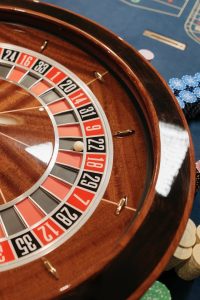History of Gambling
 Gambling is considered one of the oldest types of entertainment, and there are several versions of the time and type of its origin. The essence of gambling is investing money in some game of chance or luck, risking losing it, and if you win, get a win. This inherent desire in people to win and get more, relying on luck, is called excitement.
Gambling is considered one of the oldest types of entertainment, and there are several versions of the time and type of its origin. The essence of gambling is investing money in some game of chance or luck, risking losing it, and if you win, get a win. This inherent desire in people to win and get more, relying on luck, is called excitement.
According to historical evidence, it is believed that people gambled back in the days of ancient civilizations. For example, the Romans described dice games played by both peasants and emperors. In addition, records of games and fights, as well as debts for gambling, have been preserved. In turn, the dice themselves were found in the ruins of Pompeii.
It is claimed that ancient China (approximately 3000 BC) also used dice, mainly to divide the territory of the country. In 100 AD, the kings of Sweden and Norway also decided in this way to find out who would own the territory of Hisinga. This story of how heads of state solved a problem with dice instead of war and diplomatic agreements has gained immense popularity around the world.
In turn, bones, according to historical facts, appeared in China in the 9th century. This is associated with the invention of paper, which, in turn, led to the spread of paper money throughout the world. The cards later spread to Asia, reached Egypt, and eventually appeared in Europe only in the 14th century, when a deck of 52 cards was already used, as in our days.
In the 17th century, a gambling game was invented in France, and it became one of the most popular casino games in the world – roulette. Roulette, or the small wheel, quickly gained popularity throughout Europe and, after some time, crossed the Atlantic, where during the Gold Rush, it became one of the most famous American pastimes.
Furthermore, throughout the 18th and 19th centuries, such famous games as blackjack or point, as well as poker, appeared in the world and became an integral part of the entertainment industry in Europe and America.
 The very first slot machine was invented in New York only at the end of the 19th century, and, like modern machines familiar to us, it consisted of rollers with symbols that began to rotate when money was placed in the machine, and the lever was pressed. However, unlike modern ones, in which various images rotate, the first slot machines rotated real playing cards. Since the original slot machine lacked a payout mechanism, prizes—like free drinks or cigars—could only be claimed at the bar.
The very first slot machine was invented in New York only at the end of the 19th century, and, like modern machines familiar to us, it consisted of rollers with symbols that began to rotate when money was placed in the machine, and the lever was pressed. However, unlike modern ones, in which various images rotate, the first slot machines rotated real playing cards. Since the original slot machine lacked a payout mechanism, prizes—like free drinks or cigars—could only be claimed at the bar.
In the twentieth century, slot machines went through several significant stages of development. To reduce manufacturing costs and simplify the process, the original metal slot machines were replaced with wooden ones, which also reduced the noise made by the clinking coins and the spinning roller. Over time, slot machines introduced colors and games on different themes, which attracted the attention of women and became a wonderful pastime.
The most significant period in the history of gaming machines occurred in the 1960s, when electromechanical devices—which were regarded as far more dependable than mechanical ones—replaced mechanical ones, creating new avenues for innovation. Despite the fact that the game was played entirely electronically, the lever was still retained at first but was soon replaced by action buttons on the panel. Just a couple of years later, a video game machine was invented with the first 19-inch display, which quickly gained popularity.
The first online gambling appeared in the mid-1990s as a result of the growth of the Internet, initially providing only traditional casino games like blackjack and roulette. Still, very soon, they were joined by almost all card games, table games, and games available in land-based gaming halls. Games for slot machines. In recent years, the development of computer programming has removed any restrictions on creating games, and new exciting types of games with unusual layouts and structures have appeared, attracting more and more new players.
…

 Modern gambling games come in a wide range. They may vary in availability, complexity of gameplay, and degree of risk. Sometimes, the outcome of the game can depend only on luck, and sometimes, the result depends on the player’s skills. Despite the wide variety of gambling games, some of them are still the most popular on poker-dom-az. Let’s take a closer look at them.
Modern gambling games come in a wide range. They may vary in availability, complexity of gameplay, and degree of risk. Sometimes, the outcome of the game can depend only on luck, and sometimes, the result depends on the player’s skills. Despite the wide variety of gambling games, some of them are still the most popular on poker-dom-az. Let’s take a closer look at them. Rates
Rates